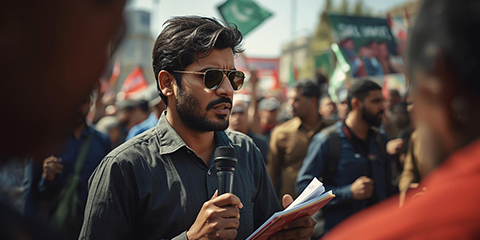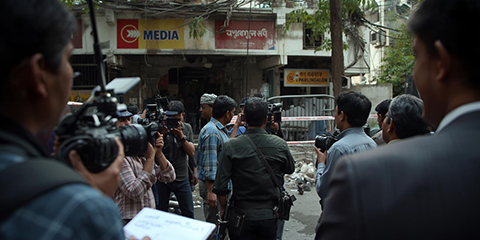The path to journalism: What you need to know
JournalismPakistan.com | Published last year | Steve Manuel
Join our WhatsApp channel
At JournalismPakistan.com, we frequently get requests from students and other individuals interested in knowing how to get started in journalism, the basics of journalism, and the skills needed to become a journalist. Although we try our best to patiently explain the requisites, we usually end up frustrated because journalism is not something you get the hang of overnight. There are no shortcuts, no quick fixes, and, most importantly, as in all professions, either you have it or you don’t; you can’t force it.
Misconceptions About Journalism
Also, there is this bizarre myth that journalism is an action-filled job. Well, most of the time it isn’t. Rather, it’s just plain hard, repetitious work.
Does it Pay Well?
Of course, it does, but for that, you have to be in that 0.005 percent of iconic journalists who reel in the big bucks. It has as much to do with personality, lucky breaks, being exceptionally enterprising, and knowing your job well as anything else. Otherwise, think moderate to comfortable.
One young fellow informed me he wanted to be an anchor because he wanted to be famous. I wished him all the luck. After three years of struggling in a news channel, he now works at a hotel reception. That’s the way it is.
The Reality of Journalism
Journalism is not an easy profession. However, the more you know about what makes it click, the better you are likely to be at it. One has to be dedicated, disciplined, patient, sharp, and enterprising and have a passion for the profession to make the cut. Otherwise, resign yourself to be confined forever to some desk in the newsroom if you’re lucky.
Respect and Recognition
The financial remuneration might not be what you imagined, but you can get plenty of respect and recognition. Indeed that is the fuel that most real journalists run on. But in journalism, as in everything else, there is a starting point.
Ways to Enter Journalism in Pakistan
In Pakistan, there are five ways of ending up in journalism or ‘the media’ as they prefer to call it now:
Apprenticeship: You learn the job on-hand as an apprentice sub or cub reporter.
Education: You get a Master's degree from one of the few local universities that do offer programs in Journalism or Mass Communication and cash in on it.
Family Connections: Your father, uncle, brother, sister, or cousin are already in the business and put in a word for you with the editor/CEO, and you want to follow in their footsteps.
Government Appointment: You are a direct government/political appointee aiming at a quick rise to the top.
Embedded Journalist: You have been planted/embedded by the government, state/military intelligence agencies to promote their agenda and keep an eye on those individuals likely to cause a ripple or don’t agree with those aforementioned agendas.
Learning the Ropes
One way or the other, when an individual enters the newsroom of any newspaper or news channel, he has much to learn. Usually, despite all the degrees, political clout, or directives, newcomers to the newsroom will feel like a fish out of water. They have no firsthand experience and, quite bluntly, know nothing about nothing.
Early Journalism Education
That is why for the media to improve in Pakistan it is essential that journalism is taught at a much earlier stage than the university. High school would be a good start. In Europe and the United States, there are some middle and high schools that have included journalism and mass communication in their curriculum. The result of this has been that students have shown maturity, understanding, and capability far beyond what had been expected.
Student Journalism in the West
Some schools not only have a bi-weekly or monthly newspaper but also weekly live news broadcasts. To say I was surprised by the quality of work from 14-18-year-olds would be putting it mildly. I was impressed, really impressed by their output.
Impressive Student Programs
At one of the schools I visited, Gunderson High School in San Jose, I was amazed to discover that some 30 students had registered for journalism classes. Not only were they learning the basics, history, and associated technology and equipment, but they were independently producing a weekly news bulletin and a newspaper called Paw Print, named after the school mascot, a grizzly.
Learning by Doing
The students get the bulk of their journalistic knowledge from Miss Allana Callaway, who pointed out that many of their students did their research and independently came up with story ideas for the newspaper and broadcasts. The news bulletins are completely directed, edited, and broadcast by students as well.
Firsthand Experience
"What we are doing is learning firsthand all the skills that we will have to put to use when we do enter the real world of journalism, and if not, at least we will have a perfect idea of how the media functions," one journalism student said. Another was quick to add: "Not only is it fun but we learn something new every time we film, edit, and broadcast."
A Wish for Pakistani Schools
I wish we had something like this in Pakistan.

























